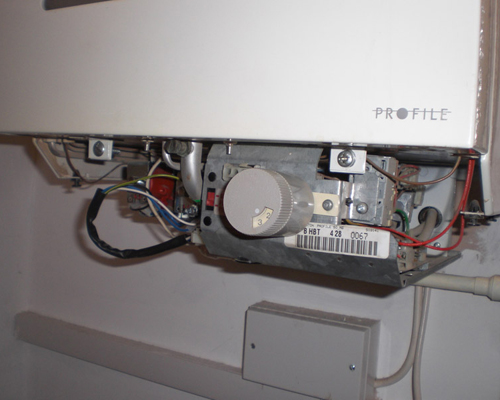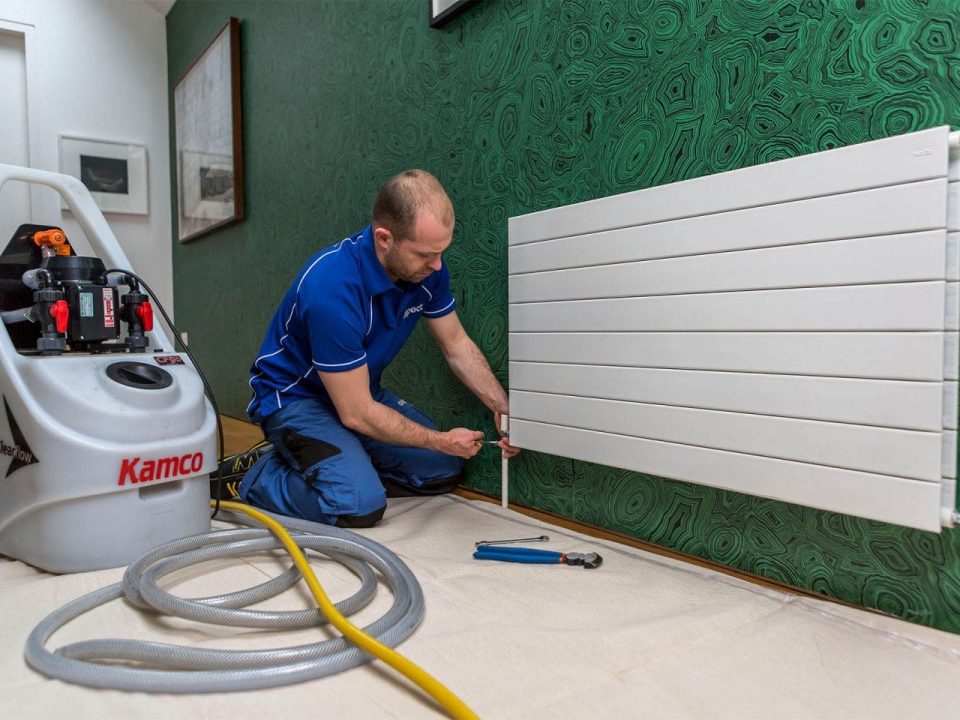
The Ultimate Guide to Power Flushing: A Vital Home Maintenance Task
October 18, 2023
The Ultimate Guide to Boiler Installation | A Step-by-Step Overview
October 30, 2023Introduction:
Boilers are the unsung heroes of our homes, silently working to keep us warm and cozy during the chilly winter months. However, like any other piece of machinery, boilers can encounter problems that require timely attention. Ignoring boiler issues can not only leave you shivering in the cold but also pose serious safety hazards. In this comprehensive guide, we will delve into the world of boiler repair, offering valuable insights to help you keep your boiler running smoothly and efficiently.
Understanding Boiler Basics
Before diving into boiler repair, it’s essential to have a basic understanding of how boilers work. Boilers are heating systems that use water to generate heat and distribute it throughout your home. They come in various types, including:
- Combination (Combi) Boilers: These boilers provide both hot water and central heating from a single unit.
- System Boilers: System boilers work with a hot water cylinder to store hot water.
- Conventional (Regular) Boilers: Conventional boilers use a cold water storage tank and a hot water cylinder.
- Condensing Boilers: Condensing boilers are highly efficient, as they recover heat from the flue gases.
Common Boiler Problems
Boilers are intricate systems, and several issues can affect their performance. Here are some common boiler problems to watch out for:
- No Heat or Hot Water: If your boiler isn’t producing heat or hot water, it could be due to a faulty thermostat, diaphragm, or airlock.
- Strange Noises: Unusual sounds like banging, gurgling, or whistling may indicate issues with water pressure, air in the system, or a faulty pump.
- Leaking: Leaks are often a result of damaged or corroded pipes, valves, or seals.
- Low Boiler Pressure: Low pressure can lead to a loss of heating or hot water. It may be caused by water leaks or issues with the pressure relief valve.
- Frozen Condensate Pipe: During winter, the condensate pipe can freeze, causing the boiler to shut down. Thawing the pipe can resolve this issue.
Boiler Repair and Maintenance Tips
Now that we’ve covered common boiler problems, let’s explore some boiler repair and maintenance tips:
- Regular Servicing: Schedule annual boiler servicing with a certified technician to ensure it’s operating efficiently and safely.
- Bleed Radiators: If your radiators aren’t heating up properly, bleeding them can release trapped air and improve heat distribution.
- Check for Leaks: Regularly inspect your boiler for any visible leaks or signs of corrosion. Address leaks promptly to prevent further damage.
- Monitor Boiler Pressure: Keep an eye on your boiler’s pressure gauge and ensure it stays within the recommended range.
- Protect from Freezing: To prevent freezing, insulate exposed pipes and consider installing a frost thermostat to keep the boiler running in cold weather.
- Upgrade to a Smart Thermostat: Installing a smart thermostat can help you monitor and control your boiler remotely, optimizing its energy efficiency.
When to Call a Professional
While some boiler issues can be addressed with DIY solutions, others require the expertise of a professional technician. It’s advisable to call a qualified heating engineer if you encounter the following situations:
- Persistent boiler breakdowns.
- Gas leaks or the smell of gas.
- Unusual noises that persist despite bleeding radiators.
- Boiler pressure problems that can’t be resolved.
- Boiler age exceeds 15 years, as older boilers may be less efficient and more prone to breakdowns.
Conclusion
A well-maintained and efficiently operating boiler is essential for a comfortable and safe home. Regular maintenance and addressing issues promptly can extend the life of your boiler and reduce energy bills. Remember, safety should always be a priority, so if you’re uncertain about any aspect of boiler repair, don’t hesitate to seek professional assistance. With the right care, your boiler will continue to keep you warm and cozy for years to come.
For Book Appointments Now visit https://idmcertificate.spacegalleon.tech/make-an-appointment/
For social Connection You can also Visit and follow our Social media Platforms




